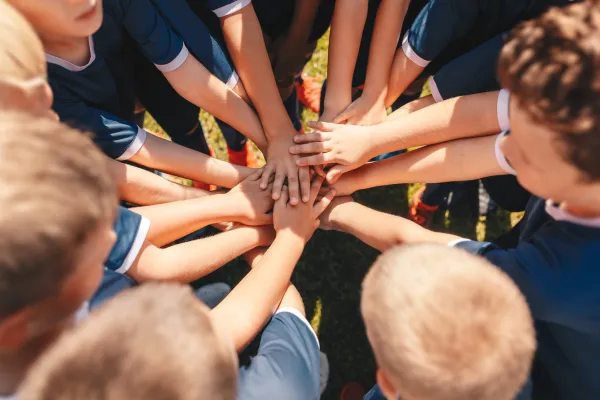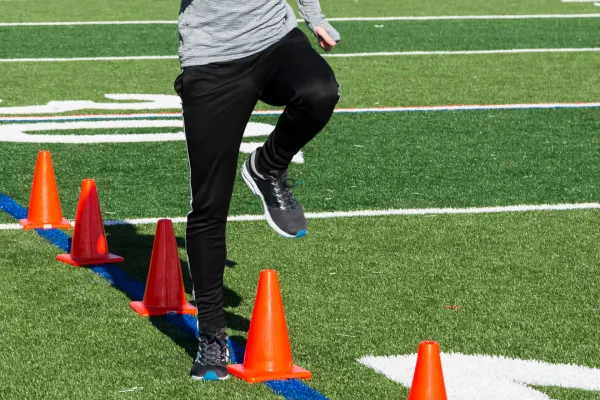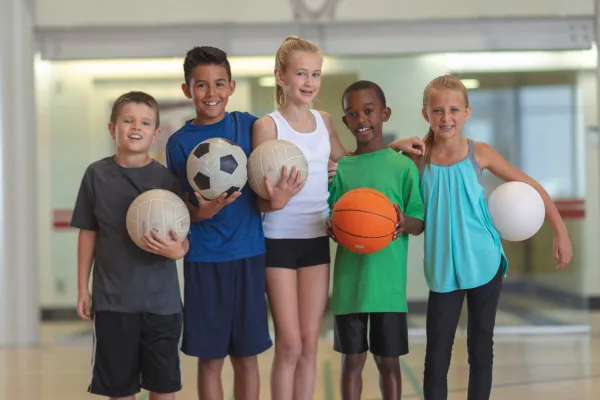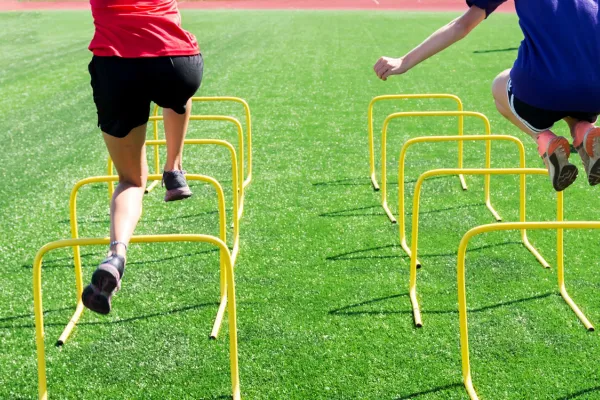
Me to We: How Mindset Builds Strong Team Culture in Youth Sports
By Kari Ehmer
Mindset Coach, Motivational Speaker, and Army Veteran
Back-to-school season is more than new notebooks, sharpened pencils, and the start of a fresh semester. For youth athletes, it’s also the time when teams regroup, new rosters form, and athletes settle into their roles both on the field and in the classroom. It’s a season of fresh opportunities, but also of pressure balancing academics, practices, competitions, and friendships.
And one of the most important factors that determines whether a team thrives or struggles? Mindset.
Every coach wants a strong team culture, but here’s the truth: before we can talk about team culture, we must talk about individual mindset. Each athlete needs to bring the best version of themselves mentally and physically in order for the group to function at its best.
Like NFL Champion Coach Bill Belichick once said:
“Mental toughness is doing the right thing for the team when it’s not the best thing for you.”
That’s not always easy for young athletes. But it’s where the magic happens.
Why Mindset Matters More Than Talent
Talent wins games, but mindset sustains culture. A team filled with skill but lacking trust, communication, or resilience will break down under pressure. On the other hand, a team of athletes who believe in themselves and in each other will consistently outperform expectations.
Here’s what mindset does for athletes:
Confidence: Athletes who trust their training and their ability bounce back faster after mistakes.
Resilience: When the game gets tough, athletes don’t crumble; they reset and keep going.
Focus: Whether it’s a tough teacher, a noisy gym, or even their own self-doubt, athletes know how to block out distractions.
And when each player carries these qualities, it doesn’t just make them stronger individually, it elevates the entire team.
The Shift from “Me” to “We”
Every young athlete has moments when they want the spotlight. That’s normal. But if the goal is building a winning team culture, the individual must shift from a me-first mentality to a we-first mentality.
This is where Belichick’s wisdom hits home: “Doing the right thing for the team when it’s not the best thing for you.”
That means…
Passing the ball to the open teammate instead of forcing the shot.
Accepting a role on defense even if you dream of being the leading scorer.
Staying disciplined with schoolwork so you don’t let your teammates down by being ineligible.
Supporting a teammate who’s struggling, instead of criticizing or ignoring them.
Those decisions may not feel glamorous in the moment, but they’re what builds trust and creates team chemistry. And when trust grows, culture follows.
Look at the Golden State Warriors. Their dynasty wasn’t just built on Steph Curry’s three-point shooting. It was built on a culture of unselfish play. Curry, one of the greatest shooters of all time, consistently passes up shots to get his teammates involved. That attitude sets the tone when your star player is willing to share the spotlight, everyone else buys in. Add in Draymond Green embracing his role as the emotional leader and defensive anchor, and you see what “we over me” looks like in action. Their willingness to value the team’s success over individual stats is the reason the Warriors have been able to sustain greatness year after year.
Youth athletes can learn a powerful lesson from that example: championships aren’t won by individuals chasing stats. They’re won by teams committed to something bigger than themselves.
The Ripple Effect of a Team-First Mindset
Here’s the beauty of team culture: it’s contagious. When even one player consistently models unselfishness and mental toughness, it challenges others to rise to that standard. Soon, the habits spread.
Communication improves. Athletes feel safe speaking up and listening to each other.
Roles are valued. Players understand that the sixth man, the defensive stopper, or the scout team are just as essential as the star player.
Resilience spreads. When one athlete resets quickly after a mistake, the rest of the team learns to follow suit.
Think about it: if you’ve ever been on a team where players only cared about their own stats, you know how quickly the culture falls apart. But on the flip side, when athletes put the team first, something powerful happens: the whole becomes greater than the sum of its parts.
What Coaches Can Do
Coaches set the tone. The culture of a team almost always reflects the standards set by the coaching staff. Here are a few practical ways coaches can use mindset to build culture this school year:
Celebrate Team-First Moments: Don’t just praise the game-winning shot. Highlight the hustle play, the unselfish pass, or the quiet leader who keeps spirits high.
Teach Reset Routines: Give athletes practical tools like breathing techniques or “Mistake & Move On” drills so they know how to bounce back quickly.
Model It Yourself: Athletes notice everything. If coaches handle pressure, mistakes, and adversity with calm focus, the team will learn to do the same.
Create Shared Language: Develop team mantras or affirmations that connect individual growth to team goals. (Example: “We succeed because we believe.” “We rise together.”)
What Parents Can Do
Parents play just as critical a role in shaping culture. What happens at home echoes loudly in the gym, field, or pool.
Value Character Over Stats: When your athlete comes home, ask about effort, teamwork, or attitude before asking about points or stats.
Encourage Balance: Remind athletes that academics and athletics are both opportunities to practice discipline, time management, and resilience.
Cheer for the Team: In the stands, celebrate all players’ contributions, not just your child’s. Kids notice.
Model Resilience: How you respond to setbacks in your own life teaches your athlete how to respond to theirs.
What Athletes Can Do
At the end of the day, athletes themselves carry the responsibility for their mindset. Here are simple, actionable steps they can take:
Check In Daily: Ask yourself, “Am I making my team better today?”
Control the Controllables: You can’t control the refs, the weather, or your coach’s rotation. You can control your effort, focus, and attitude.
Practice Positive Self-Talk: Replace “I can’t” with “I’ll figure it out.” Replace “I messed up” with “Next play.”
Be a Great Teammate: The best leaders aren’t always the loudest or the most talented. They’re the ones who consistently put the team first.
Back-to-School Is More Than Books and Practices
Back-to-school isn’t just about academics or athletics in isolation. It’s about preparing young athletes to thrive in every arena of life.
When youth athletes learn to master their own mindset, they build confidence and resilience. When they shift from “me” to “we,” they help create a culture of trust and accountability. And when teams embrace a culture built on mindset, everyone benefits athletes, coaches, parents, and even the larger school community.
So, this school year, let’s challenge every athlete to embrace the true meaning of mental toughness: doing the right thing for the team, even when it’s not the best thing for you.
Because when athletes commit to being their best for the sake of something bigger than themselves, they don’t just build better teams. They build better leaders, better communities, and better futures.

About the Author:
Kari is a Motivational Speaker, Mindset Coach, and Mentor. She is the Founder of Kari Ehmer Speaking and Coaching, helping athletes and coaches build confidence, resilience, and the mindset to thrive under pressure. A West Point grad, Army veteran, and former D1 athlete, Kari brings 20+ years of experience in performance coaching, leadership, and sports. Learn more at www.kariehmer.com and follow @kariehmer on Instagram.
If this blog sparked reflection or affirmed your mission—don’t stop here.
Get certified with the International Youth Coaching Association (IYCA) and gain the tools, science, and strategies to confidently support long-term athlete development.
Whether you’re working with beginners or elite youth athletes, IYCA certifications are designed to elevate your impact.
Learn more and get certified today:
Certifications
Certified Athletic Development Specialists (CADS)
Certified Speed & Agility Specialist (CSAS)
Youth Nutrition Specialist (YNS)
Youth Athletic Assessment Specialist (YAAS)
High School Strength & Conditioning Specialist (HSSCS)
Because the best coaches never stop learning, and the athletes you serve deserve your best.







